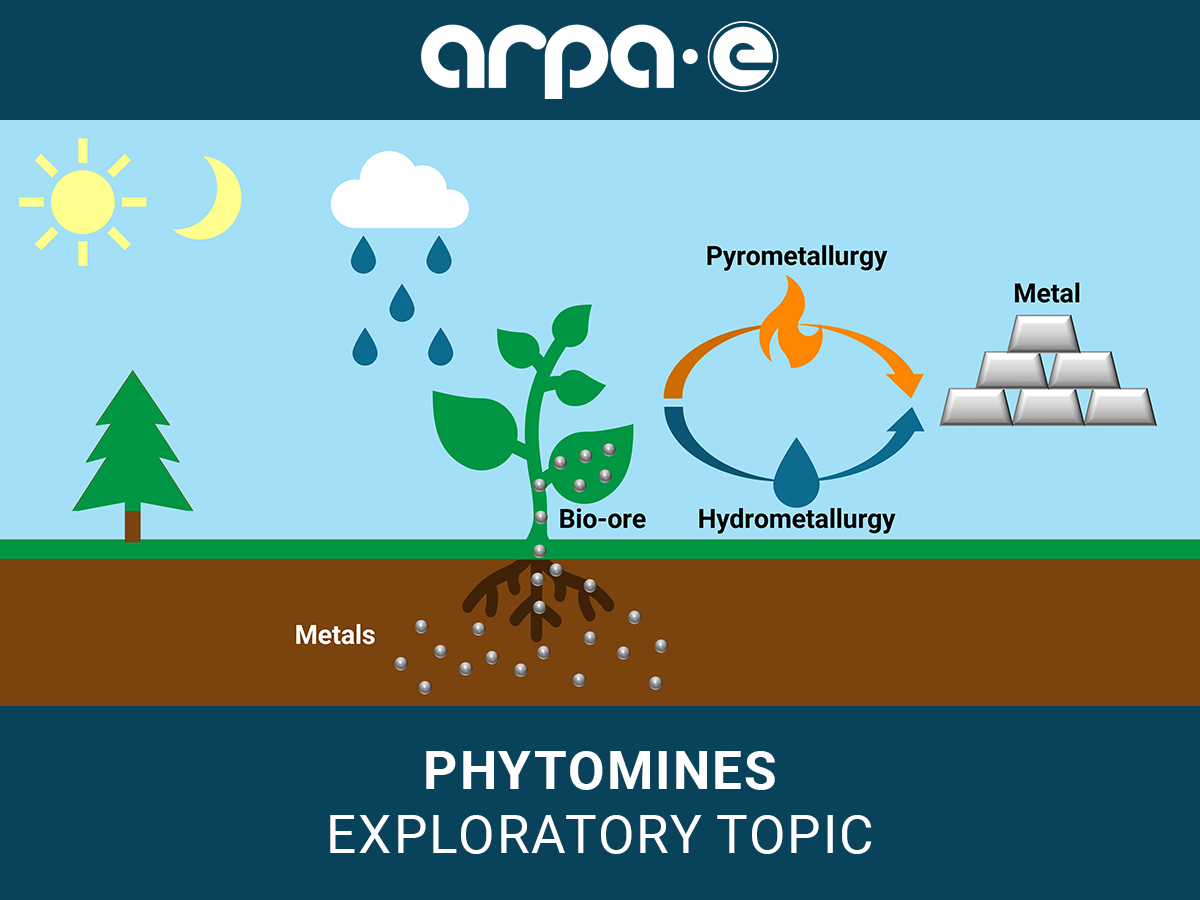
U.S. Department of Energy Announces $10 Million to Explore Using Plants to Extract Critical Materials from Soil to Support Domestic Supply Chain
WASHINGTON, D.C. — The U.S. Department of Energy (DOE) today announced up to $10 million in funding to explore nickel extraction from soil using plants—a process known as phytomining—to establish a competitive domestic supply chain, supplement conventional mining methods, and reduce nickel imports. Managed by the Advanced Research Projects Agency-Energy (ARPA-E), this effort supports President Biden’s Investing in America agenda to strengthen domestic critical materials supply chains, enhance our economic and national security, and meet the growing demand for critical materials needed to ensure America leads the world in the emerging clean energy economy.
“In order to accomplish the goals laid out by President Biden to meet our clean energy targets, and support our economy and national security, it’s going to take all-hands-on-deck approach and innovative solutions,” said ARPA-E Director Evelyn N. Wang. “By exploring phytomining to extract nickel as the first target critical material, ARPA-E aims to achieve a cost-competitive and low-carbon footprint extraction approach needed to support the energy transition.”
Among the critical materials named in the DOE Critical Materials Assessment (CMA), nickel serves as an ideal target to validate the viability of phytomining in the U.S. due to the large number of documented nickel hyperaccumulation (HA) plants. Nickel is used in the cathodes of lithium-ion batteries present in electric vehicles, consumer electronics, stationary storage, stainless steel, metallurgy, coatings, electroplating, and other alloys. Nickel is crucial to global clean energy technology supply chains and future demand is expected to grow.
The new ARPA-E Exploratory Topic announced today, Plant HYperaccumulators TO MIne Nickel-Enriched Soils (PHYTOMINES), seeks to spur the technological development of phytomining in the United States that could complement current and future domestic sources of nickel and catalyze phytomining of critical minerals beyond nickel.
The targeted outcomes of PHYTOMINES are:
- Developing technologies that optimize the biotic systems which regulate the availability and uptake of nickel by hyperaccumulator plants.
- Technologies could be interventions in the soil or plant microbiome or the development of plant traits that enable the accumulation of nickel at an enhanced rate. ARPA-E envisions these projects as early-stage proof-of-concepts likely to take place in closed or open-air laboratories, greenhouses, or confined fields where light, humidity, and temperature regimes can be fully programmed.
- Technologies could be interventions in the soil or plant microbiome or the development of plant traits that enable the accumulation of nickel at an enhanced rate. ARPA-E envisions these projects as early-stage proof-of-concepts likely to take place in closed or open-air laboratories, greenhouses, or confined fields where light, humidity, and temperature regimes can be fully programmed.
- Understanding the interrelationships of the geologic, ecological and economic factors that affect the potential of phytomining.
- Possible projects include mapping HA species of interest, mineral characteristics in soil, and land ownership data for natural habitats and adjacent areas viable for phytomining, scaling opportunities, and technoeconomic and lifecycle analyses of phytomining projects.
- Possible projects include mapping HA species of interest, mineral characteristics in soil, and land ownership data for natural habitats and adjacent areas viable for phytomining, scaling opportunities, and technoeconomic and lifecycle analyses of phytomining projects.
PHYTOMINES encourages partnerships between farmers, scientists, battery manufacturers, steel and mining industries, and more. You can access more information on ARPA-E Exchange.
ARPA-E advances high-potential, high-impact clean energy technologies across a wide range of technical areas that are strategic to America's energy security. Learn more about these efforts and ARPA-E's commitment to ensuring the United States continues to lead the world in developing and deploying advanced clean energy technologies.
###
Press and General Inquiries:
202-287-5440
ARPA-E-Comms@hq.doe.gov
